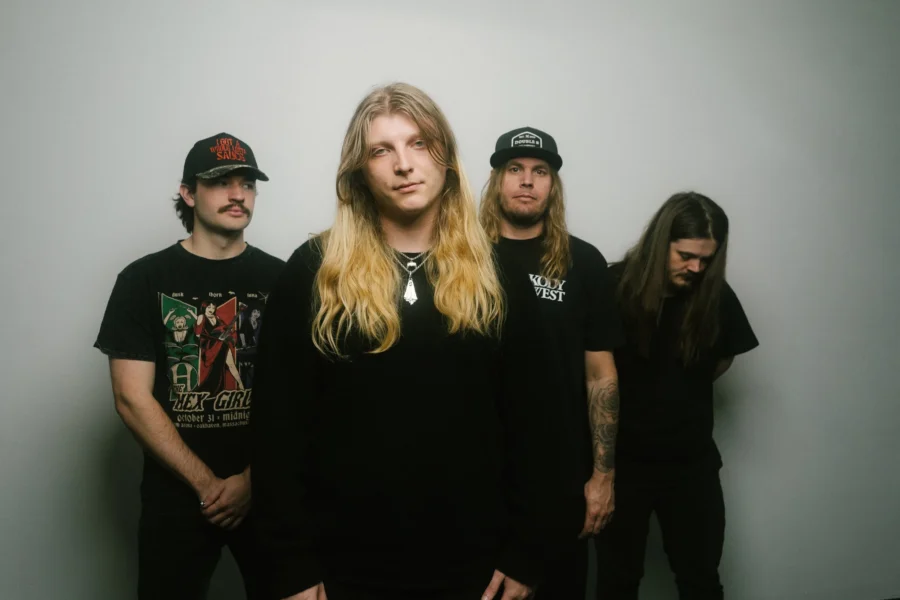The idea of a single, unifying sound has long been a foundational myth of popular music. From the rockabilly of the 1950s to the grunge of the 1990s, bands were often defined by their fidelity to a specific genre. But in an era where digital archives have flattened history and streaming algorithms have erased the concept of a musical monoculture, what does it mean to be a band today? Enter Dexter and The Moonrocks, a quartet from Abilene, Texas, who have not only embraced this fragmentation but have built a movement around it. Their self-proclaimed “Western Space Grunge” is less a rigid stylistic definition and more a conceptual framework, a testament to a generation of listeners who consume music not as a linear history but as an interconnected web of moods, textures, and echoes. In a landscape saturated with manufactured artistry and hyper-curated aesthetics, Dexter and The Moonrocks offer a potent counter-narrative, one rooted in genuine creative fusion and a direct, unmediated connection with their audience. They are, in essence, a case study in how a contemporary music performer can navigate the digital era by embracing a polyglot identity.
The Genesis of a Hybrid Sound
The story of Dexter and The Moonrocks is a microcosm of a broader shift in music history, where regional sounds are no longer confined by geography but are instead disseminated globally through digital platforms. The band, consisting of lead vocalist and rhythm guitarist James Tuffs, lead guitarist Ryan Anderson, bassist Ty Anderson, and drummer Ryan “Fox” Fox, came together in West Texas with an eclectic mix of backgrounds, a fry cook, an oil field operator, a concrete surface decorator, and a baseball coach. Their musical foundation was equally varied, blending the red-dirt country music of their youth with the raw, emotional power of 1990s grunge. This sonic synthesis, which they playfully dubbed “Western Space Grunge,” was a direct result of their shared influences: the narrative depth of artists like Tyler Childers and Colter Wall mashed with the sonic aggression of bands such as Nirvana and Weezer.
While genre-bending is not a new phenomenon, the manner in which Dexter and The Moonrocks achieved prominence is uniquely a product of the 21st century. Their breakthrough arrived not through a major label’s promotional machine or extensive radio play, but via a viral clip on TikTok featuring their 2021 single, “Couch.” This single, with its melancholic, slow-burn quality, struck a chord with a new generation of listeners, the “y’allternative” misfits, who found authenticity in its unvarnished sound. This success on social media underscored a critical turning point: the artist-to-audience relationship was being rewired, bypassing traditional gatekeepers and allowing for a more direct, peer-to-peer connection. This digital-native approach set the stage for their subsequent rise, proving that a compelling and honest creative vision could resonate on a global scale without a pre-existing infrastructure.
Navigating Today’s Global Music Terrain
The current landscape for Dexter and The Moonrocks is defined by a strategic balance between their DIY roots and their growing institutional credibility. Following their viral success, the band signed with Severance Records, an imprint of Big Loud Rock, a move that marked a significant step into the formal music industry without compromising their core identity. This partnership culminated in the release of their 2024 EP, Western Space Grunge, which solidified their genre-defying sound and spawned their first major radio hit, “Sad in Carolina.” The track’s ascent to the number one spot on the U.S. Alternative radio charts for seven weeks was a powerful market signal, demonstrating that their grassroots appeal could translate into mainstream success.
This success, however, is not confined to the domestic market. Their music, which touches on universal themes of love, loss, and self-destruction, has found a resonant international audience. While North American tour dates fill venues from coast to coast, their digital footprint extends far beyond, with fans in Europe, Asia, and Latin America engaging with their content and streaming their tracks. This global readership and listenership is a direct consequence of the internet’s borderless nature, which allows their distinctive music to be discovered irrespective of geographical location. The band’s unpolished, relatable social media presence, often featuring humorous, behind-the-scenes content, serves as a vital channel for maintaining this connection. It’s a performative authenticity that, while curated, feels genuine and gives fans a sense of ownership over the band’s journey. This is a key departure from the manufactured mystique of past rock icons; instead, Dexter and The Moonrocks are accessible, a friend group that just happens to be a successful band. Their ability to blend the raw energy of their live performances with a savvy digital strategy is a blueprint for the modern independent performer.
Critical Perspectives on Post-Genre Authenticity
The rise of Dexter and The Moonrocks and similar acts, while celebrated by many, is not without its critical ambiguities. The very concept of “Western Space Grunge” raises questions about the utility of genre in a post-structuralist musical world. Is this a genuine aesthetic innovation or a clever marketing label designed to capitalize on the desire for novelty? Some music theorists argue that such hybrid genres are less about creative synthesis and more about the commodification of difference, where disparate sounds are mashed together for the sake of marketability rather than artistic coherence. The band’s reliance on a viral moment, while effective, also touches on a broader cultural dilemma: does the ephemeral nature of social media trends devalue the long-term artistic practice? The very platform that launched them, TikTok, is a double-edged sword, capable of elevating artists to superstardom overnight but also of casting them aside just as quickly in favor of the next fleeting trend.
Furthermore, the integration of a small, independent act into the corporate structure of a major label like Big Loud Rock presents a classic ethical dilemma. While this partnership provides resources for a wider reach, it also raises concerns about the potential for artistic compromise. Does the pressure to produce radio-friendly hits dilute the raw, “unprofessional” sound that made them so appealing in the first place? As a cultural product, their music is now subject to the institutional machinery of the industry, which prioritizes commercial viability over artistic purity. The fan-led embrace of their music stands in subtle tension with the market forces now at play, a dynamic that will be crucial to watch as their career progresses.
The Trajectory of a Modern Movement
Looking ahead, Dexter and The Moonrocks are poised to influence the next wave of independent music. Their trajectory suggests that the future of the industry lies not in the creation of new genres, but in the intelligent and authentic recombination of existing ones. The era of the single, monolithic sound is over, replaced by a fluid and ever-changing soundscape. We can expect to see more bands and artists drawing from seemingly disparate traditions, confident that a digitally literate audience will understand and appreciate the creative synthesis.
The next five to ten years for the band will likely see them expand their international footprint, moving beyond a digital presence to full-scale global tours. This will test their ability to translate their intimate, raw energy from small venues and viral clips to large-scale arenas, a transition that has historically been a challenge for many artists. Furthermore, their success may embolden other independent creators to bypass traditional music industry entry points and leverage social media as their primary launchpad. The model they have pioneered, where a grassroots online community serves as a proof of concept for a major label, is an early signal of a new industry paradigm. Their evolution will be a fascinating case study in how a band can grow without losing the very authenticity that made them compelling in the first place, offering a path for a new generation of musicians to find their place in a world where sound is no longer a fixed point but a boundless constellation.
Dexter and The Moonrocks’ journey from a West Texas garage to the top of the alternative charts is more than just a success story; it is a cultural bellwether. Their ascendance challenges our long-held notions of genre, authenticity, and the very structure of the music industry. By blending the storytelling of country with the raw energy of grunge, they have demonstrated that the most compelling new sounds are often found in the spaces between established categories. They show us that in a globalized, digitally networked world, a performer’s most valuable asset is not their adherence to a predetermined formula, but their ability to connect with an audience on a deeply personal and genuine level. As they continue to grow, their legacy will be defined not just by their hits, but by the path they forged, a new model for what it means to be a contemporary band in a truly post-genre world.









